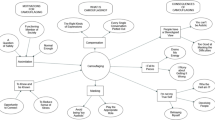Abstract
The effects of a teacher-implemented intervention and fading package on the social initiations of three withdrawn preschool children were investigated. Subjects' social initiations and any peer responses were recorded sequentially during free play. Intervention involved teacher prompting and contingent praise of specific social initiations (sharing, assisting, verbally organizing play) by each subject toward an available peer. Results indicated that (a) teacher prompts and praise increased the frequency of subjects' target initiation, (b) target initiations typically received a positive peer response, (c) subjects' extended interactions with peers also increased, (d) abrupt, complete removal of teacher prompting resulted in similarly abrupt reductions in subjects' social initiations, whereas response-dependent fading maintained subjects' initiations and interactions above baseline levels. Follow-up data 2 1/2 months later showed that the social initiations and interactions of two of the children remained above baseline levels.
Similar content being viewed by others
References
Day, R. M., Fox, J. J., Shores, R. E., Lindeman, D. P., & Stowitschek, J. J. (1982). The Social Competence Intervention Project: Developing educational procedures for teaching social interaction skills to handicapped children.Behavior Disorders, 8, 120–127.
Goetz, E. M., Thomson, C. L., & Etzel, B. C. (1975). An analysis of direct and indirect teacher attention and primes in the modification of child social behavior.Merrill-Palmer Quarterly, 21, 55–65.
Hendrickson, J. M., Strain, P. S., Tremblay, A., & Shores, R. E. (1981). Functional effects of peer social initiations on the interactions of behaviorally handicapped children.Behavior Modification, 6, 323–353.
Hops, H. (1982). Social skills training for socially withdrawn/isolate children. In P. Karoly & J. Steffen (Eds.),Improving children's competence: Advances in child behavior analysis and therapy (Vol. 1). Lexington, Massachusetts: D.C. Heath.
Keeley, S. M., Shemberg, K. M., & Carbonell, J. (1976). Operant clinical intervention: Behavior management or beyond? Where are the data?Behavior Therapy, 7, 292–305.
Nordquist, V. M., & Bradley, B. (1973). Speech acquisition in a nonverbal isolate child.Journal of Experimental Child Psychology, 15, 149–160.
Patterson, G. R., & Reid, J. (1970). Reid, J. (1970). Reciprocity and coercion: Two facets of social systems. In C. Neuringer & J. Michael (Eds.),Behavior modification and clinical psychology (pp. 133–177). New York: Appleton-Century-Crofts.
Romanczyk, R. G., Diament, C., Goren, E. R., Trunell, G., & Harris, S. L. (1975). Increasing isolate and social play in severely disturbed children: Intervention and postintervention effectiveness.Journal of Autism and Childhood Schizophrenia, 5, 57–70.
Stokes, T., & Baer, D. (1977). An implicit technology of generalization.Journal of Applied Behavior Analysis, 10, 349–367.
Strain, P. S., & Fox, J. J. (1981). Peers as behavior change agents for withdrawn classmates. In A. Kazdin & B. Lahey (Eds.),Advances in child clinical psychology (pp. 167–198). New York: Plenum Press.
Strain, P. S., & Shores, R. E. (1977). Social interaction development among behaviorally handicapped preschool children: Research and educational implications.Psychology in the Schools, 14, 493–502.
Strain, P. S., Shores, R. E., & Kerr, M. M. (1976). An experimental analysis of “spillover” effects on the social interaction of behaviorally handicapped preschool children.Journal of Behavior Analysis, 9, 31–40.
Timm, M. A., Strain, P. S., & Eller, P. H. (1979). Effects of systematic response-dependent fading and thinning on the maintenance of child-child interaction.Journal of Applied Behavior Analysis, 12, 308.
Tremblay, A., Strain, P. S., Hendrickson, J. M., & Shores, R. E. (1981). Social interactions of normal preschool children.Behavior Modification, 5, 237–253.
Van Hasselt, V. B., Hersen, M., Whitehill, M., & Bellack, A. (1979). Social skills assessment and training for children: An evaluative review.Behaviour Research and Therapy, 17, 413–437.
Author information
Authors and Affiliations
Additional information
This research was supported in part by Grant No. 007802088, U.S. Office of Special Education and Rehabilitation Services, and by Grant No. HD15051 from the National Institute of Child Health and Development. The authors wish to thank John Aiken, Gwen Beegle, Evelyn Parker, and Luis Olivera for their asistance in data collection, and Paula Goodroe, Kathy Green, and the children of the Experimental School for their cooperation in conducting this study.
Rights and permissions
About this article
Cite this article
Fox, J., Shores, R., Lindeman, D. et al. Maintaining social initiations of withdrawn handicapped and nonhandicapped preschoolers through a response-dependent fading tactic. J Abnorm Child Psychol 14, 387–396 (1986). https://doi.org/10.1007/BF00915433
Revised:
Issue Date:
DOI: https://doi.org/10.1007/BF00915433




